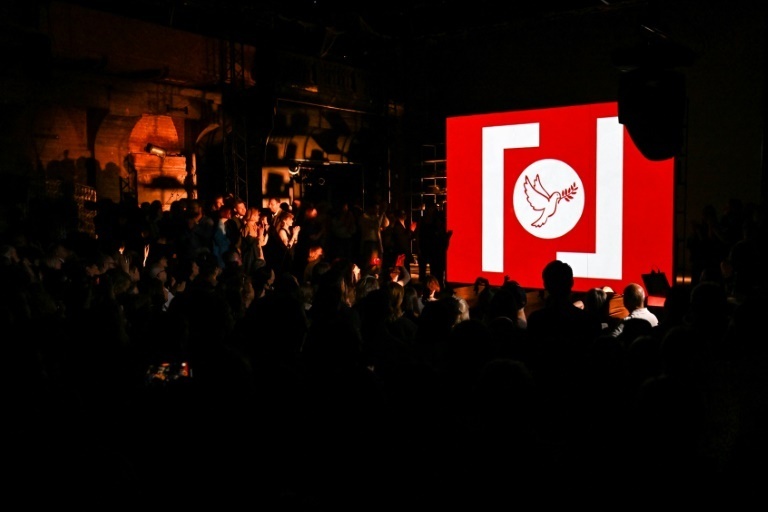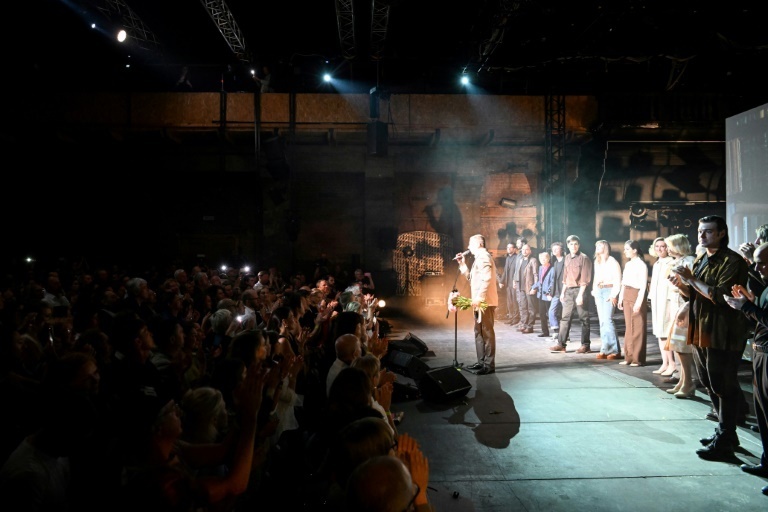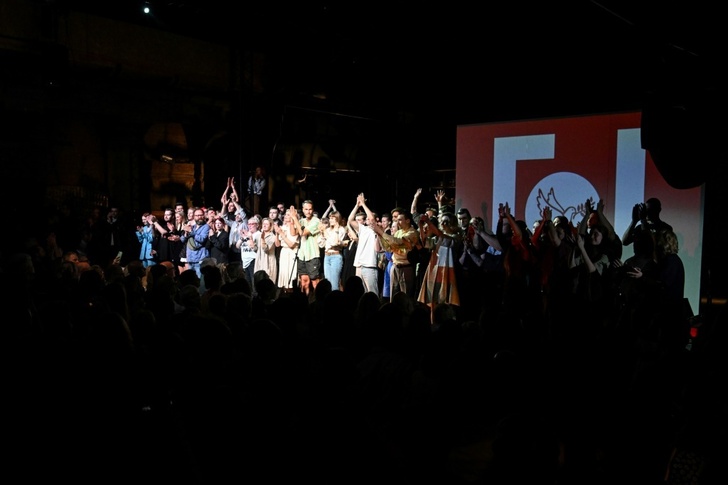The Gogol Centre theatre, one of the last bastions of artistic freedom in Vladimir Putin's Russia, shut its doors Thursday night with a defiant final show called "I Don't Take Part In War".
The emotional play protesting against the Kremlin's military intervention in Ukraine marked a dramatic end of an era for the Russian capital's ever-shrinking opposition and intelligentsia circles.
Previously run by rebel director Kirill Serebrennikov, who left Russia after criticising Moscow's offensive in Ukraine, the Gogol Centre staged daring plays for a decade, often testing increasingly strict laws and Moscow's sharp conservative turn.
Thursday's performance had some of the audience in tears when actors recited poems by Soviet poet and soldier Yuri Levitansky, a Soviet poet and soldier who was born in what is now Ukraine.
The play's name was taken from one of Levitansky's emblematic verses: "I don't take part in war, it takes part in me."
As the show ended, the theatre's outgoing artistic director, Alexei Agranovich announced: "The Gogol Centre is closed. Forever."
This week the Moscow authorities announced a change of leadership at a number of the capital's top theatres.

Serebrennikov, who transformed the theatre company into a national cultural beacon, accused the authorities of "murdering" the Gogol Centre.
On Thursday, he addressed the audience via video link from Avignon in southeastern France.
"The Gogol Centre is an idea, the idea of freedom. Freedom is not dead. Freedom lives on as long as we live," he said.
Another prominent Moscow theatre, the Sovremennik, will also have a change of management, authorities said.
These changes are seen as part of an increasing crackdown on any dissent since President Putin sent troops into Ukraine.

"They are closing everything, blocking everything," Daria Kozhevnikova, a 36-year-old teacher who came to see the play, told AFP.
She paused, before smiling uneasily: "Soon we will all be shackled together by one chain."
Her voice trembled and she appeared on the verge of tears. "It was a place where I felt good."
- 'Symbol of freedom' -
"The Gogol Centre is a place of freedom," said 39-year-old marketing specialist Aliya Talibova, who also came to see the play.
"Now they are taking it away from us."
Actor Ilya Vinogorsky, 22, said the closure of the theatre in its current iteration was "very painful".
"This should not be happening. Especially in the 21st century, when we claim to be a civilised society and state."
Serebrennikov was artistic director of the Gogol Centre between 2012 and 2021.
The 52-year-old was caught up in a high-profile fraud case that his supporters say was punishment for challenging the Russian authorities. He was forced to leave his post in February 2021.

"There was this building. There will be another," he said.
"I hope some day the war will end and the beautiful Russia of the future will emerge."
bur/gil
© Agence France-Presse
Your content is great. However, if any of the content contained herein violates any rights of yours, including those of copyright, please contact us immediately by e-mail at media[@]kissrpr.com.
Source: Story.KISSPR.com

